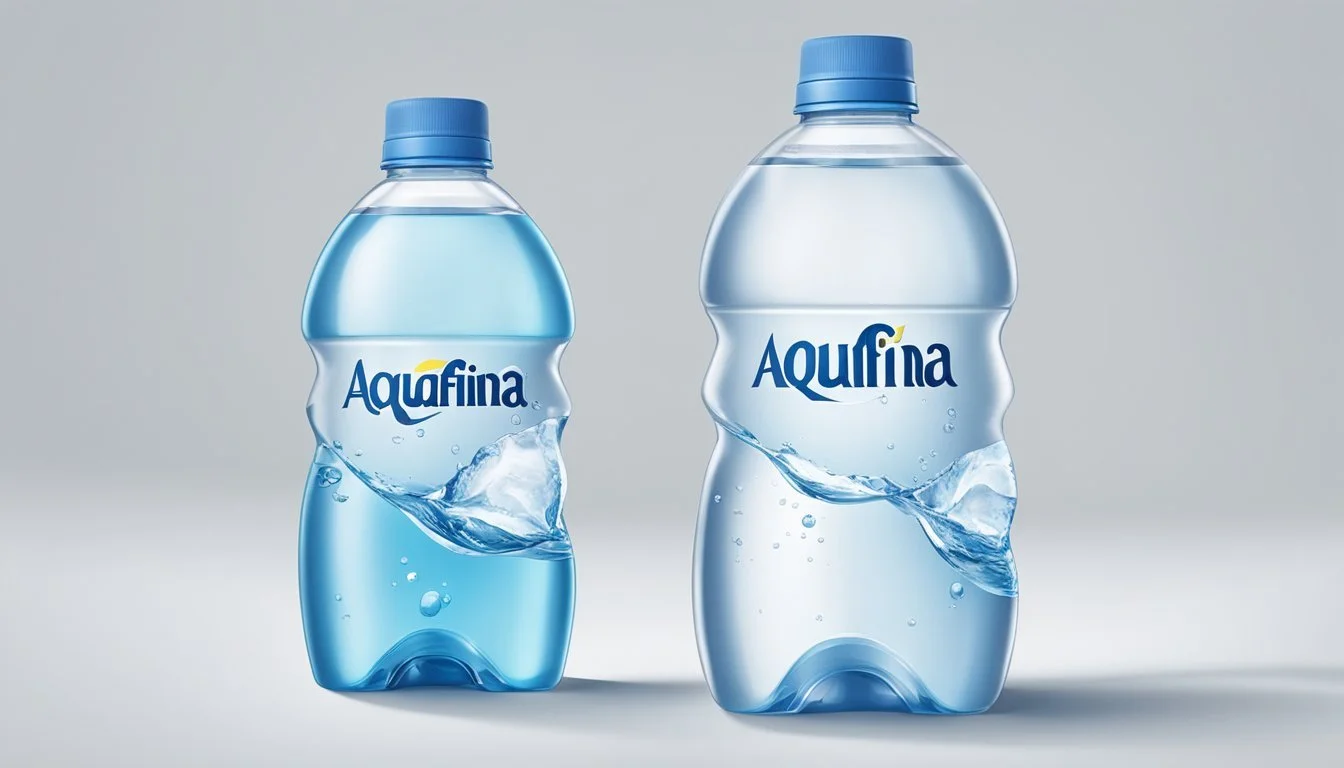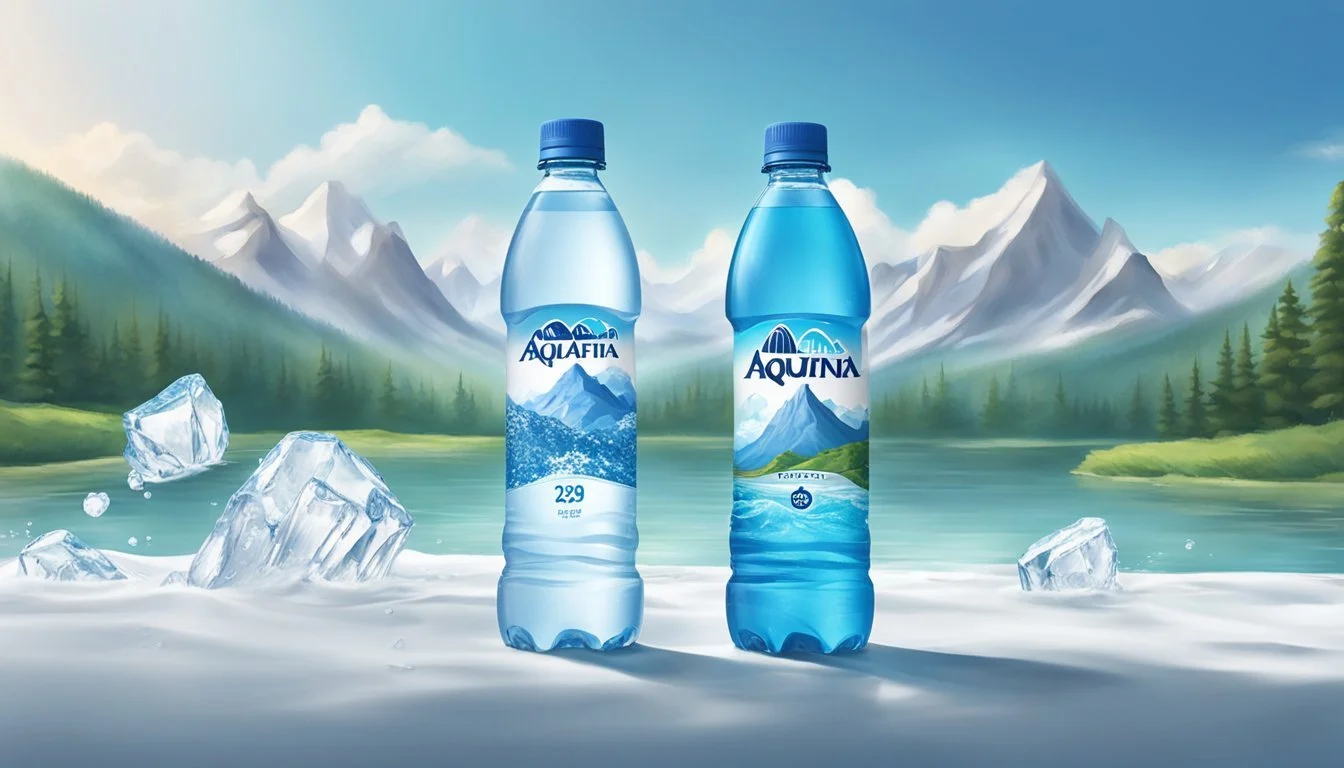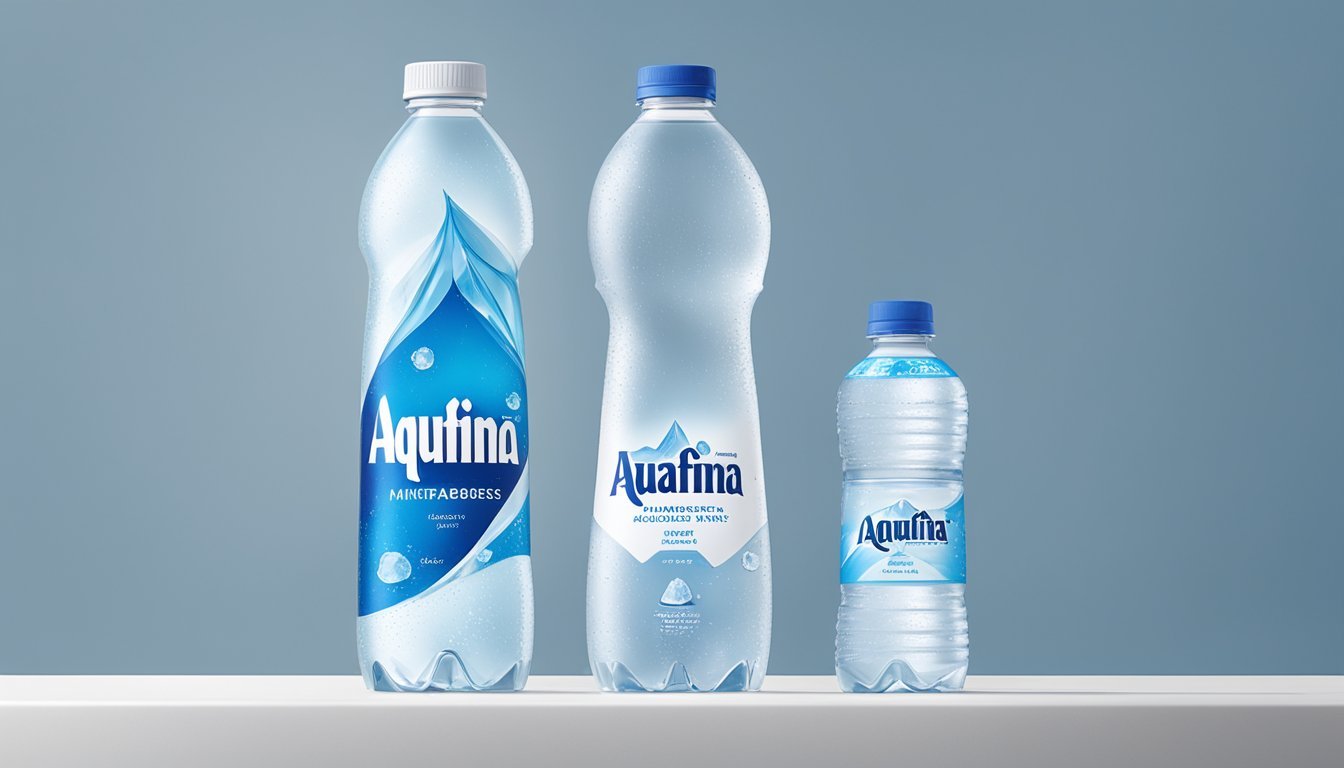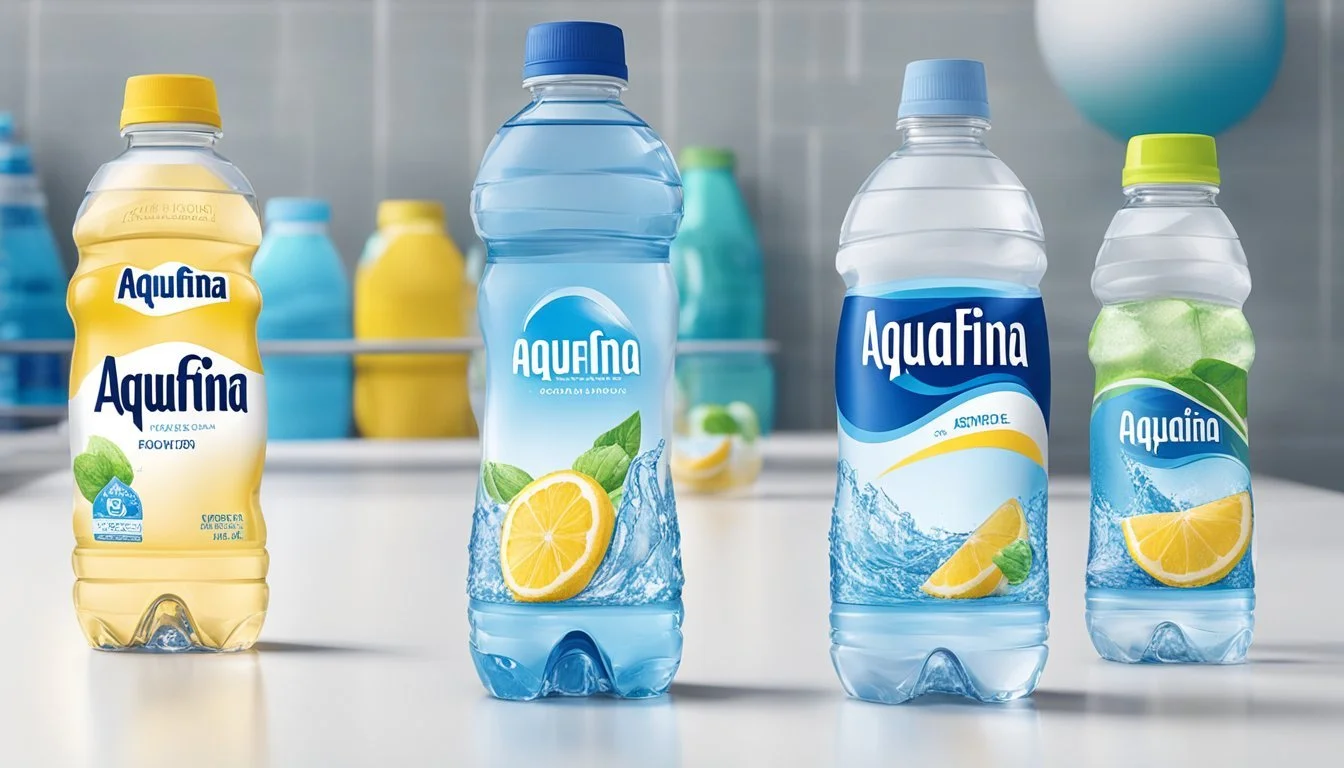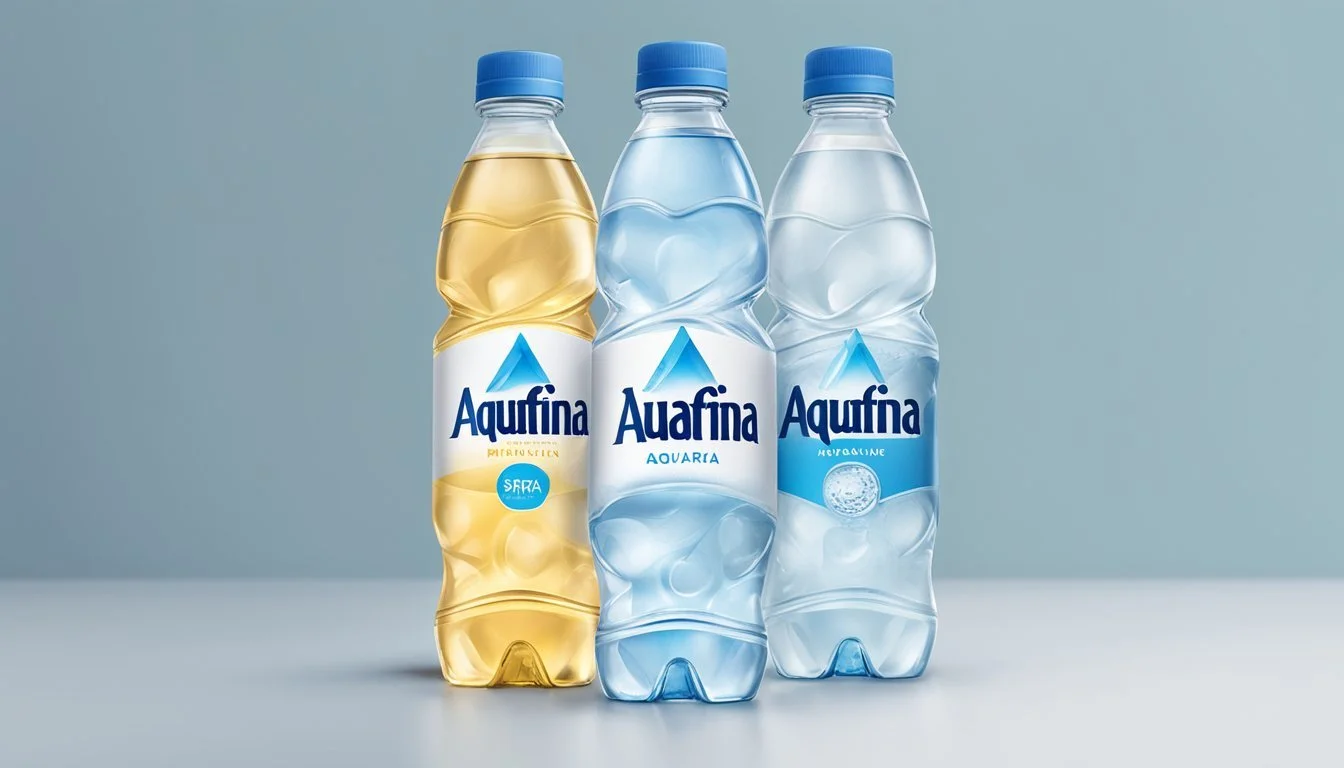Aquafina vs. Skyra
Comparison of Leading Bottled Waters
When it comes to choosing between Aquafina and Skyra bottled water, consumers often wonder which brand offers a superior experience. Aquafina, produced by PepsiCo, is known for its widespread availability and consistent purity. On the other hand, Skyra, sourced from Icelandic springs, prides itself on its naturally high pH level, which some believe benefits overall health.
Aquafina's careful purification process and widespread availability make it a reliable option for everyday hydration needs. Meanwhile, Skyra's unique selling point is its origin and mineral-rich composition, appealing to those seeking a premium, natural option.
This article will explore these two contenders in detail, comparing their taste, sourcing, mineral content, and overall value. Whether you're a casual consumer or a water connoisseur, understanding these differences can help you make an informed choice.
History and Brand Overview
Aquafina and Skyra have distinct origins and brand stories that set them apart in the bottled water market. This section explores the beginnings and development of both brands, touching on their unique characteristics and historical background.
Origins of Aquafina
Aquafina, a product of PepsiCo, entered the bottled water market in 1994. It first emerged in Wichita, Kansas, a place primarily known for aircraft manufacturing. Aquafina quickly gained traction due to PepsiCo's extensive distribution network and effective marketing strategies.
Aquafina contains purified water that undergoes a rigorous purification process, including reverse osmosis and other filtering methods. This makes it one of the most widely recognized purified water brands in the United States. The brand's commitment to stringent purification and distribution has cemented its place among leading bottled water products.
Skyra Water: The Journey Begins
Skyra Water is sourced from Iceland, distinguished by its pristine glacial water origins. Launched more recently, Skyra has carved a niche for itself in the market by emphasizing its natural purity and unique mineral content.
Skyra harnesses water from Icelandic glaciers, ensuring a naturally alkaline pH and high mineral content. This positions it as a premium brand, catering to those who prefer naturally sourced water. Skyra's growth has been bolstered by increasing consumer interest in natural and premium water products, making it a notable player in the bottled water industry.
Source and Water Type
Understanding the source and type of water is crucial in determining the quality and characteristics of bottled water. This can help consumers make informed choices based on their preferences and needs.
Aquafina: Purified Water
Aquafina, a product of PepsiCo, uses municipal tap water as its source.
This water undergoes a rigorous purification process, including reverse osmosis, ozone sterilization, and carbon filtration, to eliminate impurities and contaminants.
The aim is to provide high-quality, clean water that is free from dissolved solids, organic compounds, and potentially harmful substances.
Key Points:
Source: Municipal tap water
Purification Process: Reverse osmosis, ozone sterilization, carbon filtration
End Product: Purified water
Consumers who prioritize consistency and safety often choose Aquafina due to its stringent purification methods.
Skyra: Icelandic Spring Water
Skyra sources its water from an underground spring located in a remote region of Iceland.
This spring water is naturally filtered through layers of volcanic rock, which adds unique minerals and gives it a distinct taste.
Being naturally alkaline, Skyra's water has a higher pH level, which is believed to offer various health benefits.
Key Points:
Source: Icelandic natural spring
Filtration Process: Natural filtration through volcanic rock
End Product: Naturally alkaline spring water
Skyra appeals to those looking for natural, mineral-rich water with a distinct and refreshing flavor.
Filtration and Purification Processes
Understanding the differences in filtration and purification processes helps to highlight why some prefer Aquafina or Skyra. These processes impact the taste, safety, and overall quality of the water.
Aquafina's HydRO-7 Filtration
Aquafina uses a proprietary HydRO-7 filtration process. This seven-step process involves several stages aimed at removing impurities and ensuring purity. Firstly, reverse osmosis filters out dissolved solids. Next, the water passes through activated carbon to eliminate organic compounds and chlorine.
Additionally, ultraviolet light sterilization is employed to kill any remaining bacteria or viruses. This multi-step approach ensures that the water is free from undesirable substances commonly found in municipal supplies. It’s important to note that this intensive filtration process contributes to Aquafina’s reputation for purified water.
Skyra's Natural Purity
Skyra offers naturally filtered, high-quality water sourced from Iceland. The water naturally percolates through layers of volcanic rock, which acts as a natural filter, removing impurities and enriching the water with minerals.
Unlike Aquafina, Skyra relies on natural processes rather than extensive artificial filtration. The water's purity is maintained through minimal intervention, preserving the naturally occurring mineral content. This natural method appeals to those who prefer water with a distinct mineral flavor and less processing.
In summary, while Aquafina uses a rigorous seven-step purification process, Skyra relies on natural filtration through volcanic rocks, each offering unique benefits and catering to different consumer preferences.
Health and Safety Standards
When examining Aquafina and Skyra bottled waters, it's essential to evaluate how these brands adhere to health and safety standards. This includes regulatory compliance as well as the health benefits derived from their mineral content.
Regulatory Compliance
Both Aquafina and Skyra must comply with EPA and FDA regulations to ensure safe drinking water. The EPA sets standards for public water systems, while the FDA oversees bottled water, ensuring it meets rigorous safety protocols.
Aquafina undergoes a rigorous purification process called Hydro-7™, which involves several filtering stages to remove impurities. This method ensures that Aquafina meets or exceeds health and safety standards.
Skyra sources its water from natural springs, and it's naturally alkaline with a high pH level, which can benefit those who prefer a higher pH in their drinking water. Skyra also adheres to strict quality controls to maintain compliance with health standards.
Mineral Content and Health Benefits
Aquafina primarily focuses on purity, with a nearly neutral pH level. It has minimal mineral content, making it taste clean and straightforward without added electrolytes.
Skyra, on the other hand, offers natural mineral content, including beneficial electrolytes such as magnesium, calcium, and potassium. These minerals are essential for maintaining good health:
Magnesium helps with muscle function and energy production.
Calcium supports bone health.
Potassium aids in maintaining proper fluid balance and nerve function.
Skyra’s naturally higher pH and mineral content may appeal to those seeking alkaline water with additional health benefits from naturally occurring minerals.
Taste Profile and Water Sommelier Insights
Aquafina and Skyra offer distinct taste experiences shaped by their sources and purification processes. Insights from water sommeliers can illuminate these differences.
Water Flavors and Aromas
Aquafina, sourced from public tap water, undergoes a rigorous purification process. This results in a crisp and neutral flavor profile, free from any distinct aftertaste. Some might describe it as clean-tasting, but not particularly unique.
Skyra, originating from Icelandic springs, boasts natural mineral content. This imparts a subtle sweetness and a smooth texture. The mineral composition, including silica, contributes to its soft mouthfeel and slightly mineralic taste, which some find more appealing and distinctive.
Expert Opinions on Water Taste
Water sommeliers highlight the purity and consistency of Aquafina. Its neutral flavor makes it versatile, though some experts feel it lacks character. It's favored for its widespread availability and reliability.
Conversely, Skyra’s natural mineral content receives praise for adding layers of flavor. Water connoisseurs appreciate its unique taste, often likening it to high-end mineral waters. The naturally occurring elements contribute to a more complex profile, making it a preferred choice for those with refined palates.
Environmental Impact and Sustainability
Aquafina and Skyra bottled waters vary significantly in terms of their environmental practices and sustainability efforts. Their bottling processes and packaging innovations are key areas where these differences become clear.
Bottling Processes
Aquafina, a product of PepsiCo, focuses on water purification processes that ensure high quality. Their bottling plants are strategically located to minimize transportation emissions. PepsiCo reports continuous efforts to reduce water usage and improve energy efficiency.
Skyra, sourced from Iceland, emphasizes minimal environmental disruption in their extraction process. Their bottling facilities use renewable energy sources. Skyra aims to maintain the pristine nature of their water source while adhering to eco-friendly practices throughout production.
Packaging Innovations
Aquafina has recently introduced more sustainable packaging solutions. They have committed to making all packaging recyclable, compostable, or biodegradable by 2025. Their use of PET plastic is designed for easy recycling, and new initiatives include offering water in aluminum cans, which have a higher recycling rate compared to plastic.
Skyra, on the other hand, utilizes glass bottles for most of their product lines, ensuring a lower environmental footprint. Glass is highly recyclable and has less environmental impact over its lifecycle. Additionally, Skyra has explored options like paper-based boxed water, positioning them as a forward-thinking brand in sustainable packaging.
Consumer Experience and Convenience
Aquafina and Skyra are popular bottled water brands, but they differ in ease of access, availability, and suitability for individual needs.
Ease of Access in Markets
Aquafina is widely available in many grocery stores, convenience stores, and vending machines. Its parent company, PepsiCo, ensures strong distribution networks, making it easy to find. It's often found in various retail formats, such as individual bottles and bulk packs. Skyra, while gaining popularity, is more niche and might be less frequently seen on standard grocery store shelves. It is typically available in specialty stores and higher-end grocery chains.
Product Availability
Aquafina's distribution means it is consistently in stock in almost all major locations, from urban supermarkets to rural convenience stores. This consistency makes it a reliable choice for many. Skyra, originating from sustainable Icelandic springs, is subject to more limited distribution. Stock can be less predictable due to sourcing and shipping constraints, making it less accessible than Aquafina in everyday shopping scenarios.
Choosing the Best Bottled Water for Needs
When considering convenience, Aquafina's regular availability is unmatched. It caters to a broad audience looking for a reliable and readily available option. However, for those seeking premium options, Skyra appeals due to its unique sourcing and mineral content. Taste preferences, environmental impact, and personal health goals might sway consumer choice. Aquafina is ideal for those requiring convenience and accessibility, while Skyra fits those who prioritize quality and sustainability.
Price Comparison
When comparing Aquafina and Skyra bottled water, pricing is a key factor.
Aquafina is often considered a budget-friendly option. A standard 16.9-ounce bottle typically costs around $1.00 to $1.50. This makes it accessible for most consumers looking for basic hydration needs.
Skyra, on the other hand, positions itself as a premium brand. A 16.9-ounce bottle can range from $2.00 to $3.00. This higher price point reflects its marketing as a high-quality, Icelandic glacial water.
Brand Price per 16.9 oz bottle Aquafina $1.00 - $1.50 Skyra $2.00 - $3.00
Consumers looking for affordability may lean towards Aquafina. Those prioritizing unique sources and premium quality might opt for Skyra despite the higher price.
Branding and Market Presence
Aquafina and Skyra have established themselves as significant players in the bottled water industry. They utilize unique marketing strategies and boast distinct brand recognition and loyalty.
Marketing Strategies
Aquafina, produced by PepsiCo, leverages its parent company's extensive distribution network and marketing prowess. The brand often engages in high-profile advertising campaigns, using television, digital media, and sports sponsorships. This broad approach helps Aquafina maintain a strong presence in consumer mindshare.
Skyra, on the other hand, focuses on premium positioning. They emphasize their unique Icelandic origin, highlighting the purity and natural filtration of their water. Skyra utilizes social media and influencer marketing to reach eco-conscious and health-oriented consumers. This niche targeting differentiates them from more mass-market brands.
Brand Loyalty and Recognition
Aquafina benefits from PepsiCo's reputation and extensive reach. The brand is widely recognized and has a loyal customer base that trusts its consistency and quality. Aquafina's dominance in the market is also fueled by its accessibility, being available in most retail outlets across the US.
Skyra's brand loyalty stems from its premium image and unique selling proposition. Consumers who prioritize natural and high-quality water are more inclined to choose Skyra. The brand's focus on sustainability and environmental responsibility also contributes to strong loyalty among environmentally conscious customers.
Hydration and Health Benefits
Aquafina and Skyra are top contenders in the bottled water market, each claiming unique hydration and health benefits. Key differences stem from their purification processes and mineral content.
Aquafina's Contribution to Hydration
Aquafina undergoes a rigorous 7-step HydRO-7 filtration process. This method not only removes impurities but also emphasizes the purity of the water.
The result is a clean, crisp taste that consumers often appreciate. Given its thorough purification, Aquafina ensures optimal hydration by providing water that is free from many common contaminants.
For those prioritizing purity in their hydration choices, Aquafina stands out. Additionally, its neutral taste makes it a versatile option that can seamlessly fit into various diets and dietary preferences.
Health Advantages of Skyra
Skyra sources its water from Icelandic springs, known for their natural mineral content. This includes essential minerals like calcium and magnesium, which can contribute to better bone health and overall vitality.
With natural electrolytes, Skyra offers an edge in promoting hydration, especially for active individuals. These electrolytes help maintain fluid balance and improve hydration efficiency.
Furthermore, the pristine source of Skyra water ensures that it is free from pollutants and contaminants. This makes it a healthy choice for those who prefer naturally sourced water rich in beneficial minerals.
Comparative Analysis
In comparing Aquafina and Skyra, both consumer preferences and expert reviews offer useful insights into their overall quality and purity.
Consumer Preferences
Aquafina is praised for its affordability and accessibility, widely available in convenience stores and supermarkets. Consumers often appreciate its purified water through a rigorous 7-step filtration process known as HydRO-7, which aims to remove contaminants.
Skyra, on the other hand, markets itself as premium water from natural Icelandic sources. Customers are drawn to its high purity and natural mineral content. They often comment on its smooth and crisp taste, attributing it to the volcanic rock filtration.
Aquafina's approach to value for money and Skyra's emphasis on natural quality cater to different segments of the market. While Aquafina appeals to everyday convenience, Skyra targets those seeking a touch of luxury in hydration.
Expert Reviews and Ratings
Experts frequently highlight Aquafina's reliable purification process, ensuring a consistent and safe product. It's often described as having a neutral taste, which is fine for those preferring a subtle flavor.
Skyra is often rated higher in terms of mineral content and natural purity. Experts commend the brand for deriving its water from Icelandic springs, which contributes to its clean and fresh taste. Its mineral composition includes calcium, magnesium, and silica, beneficial for health.
Both brands receive favorable reviews, but Skyra's natural sources and mineral content give it an edge in expert circles. Aquafina’s consistency and affordability make it a household staple, though it may lack the distinctive qualities of Skyra.

